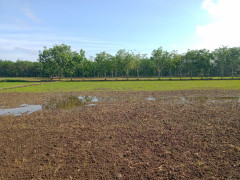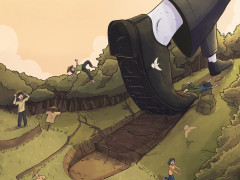Gambut: Si Miskin Hara yang Kaya Manfaat
By Agiel Prakoso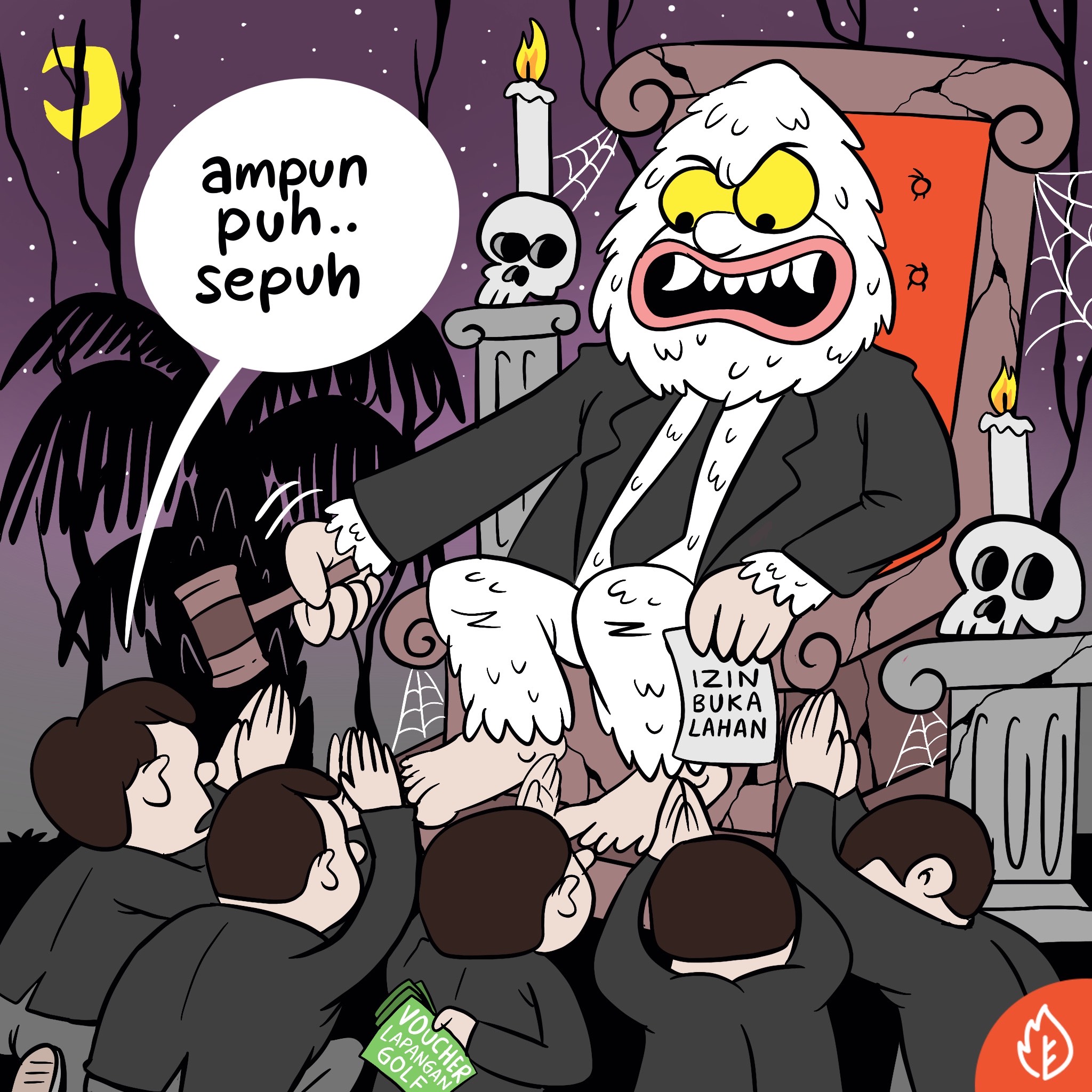
The White Monster: Wealth Multiplying Behemoth of the Nation's Conglomerates
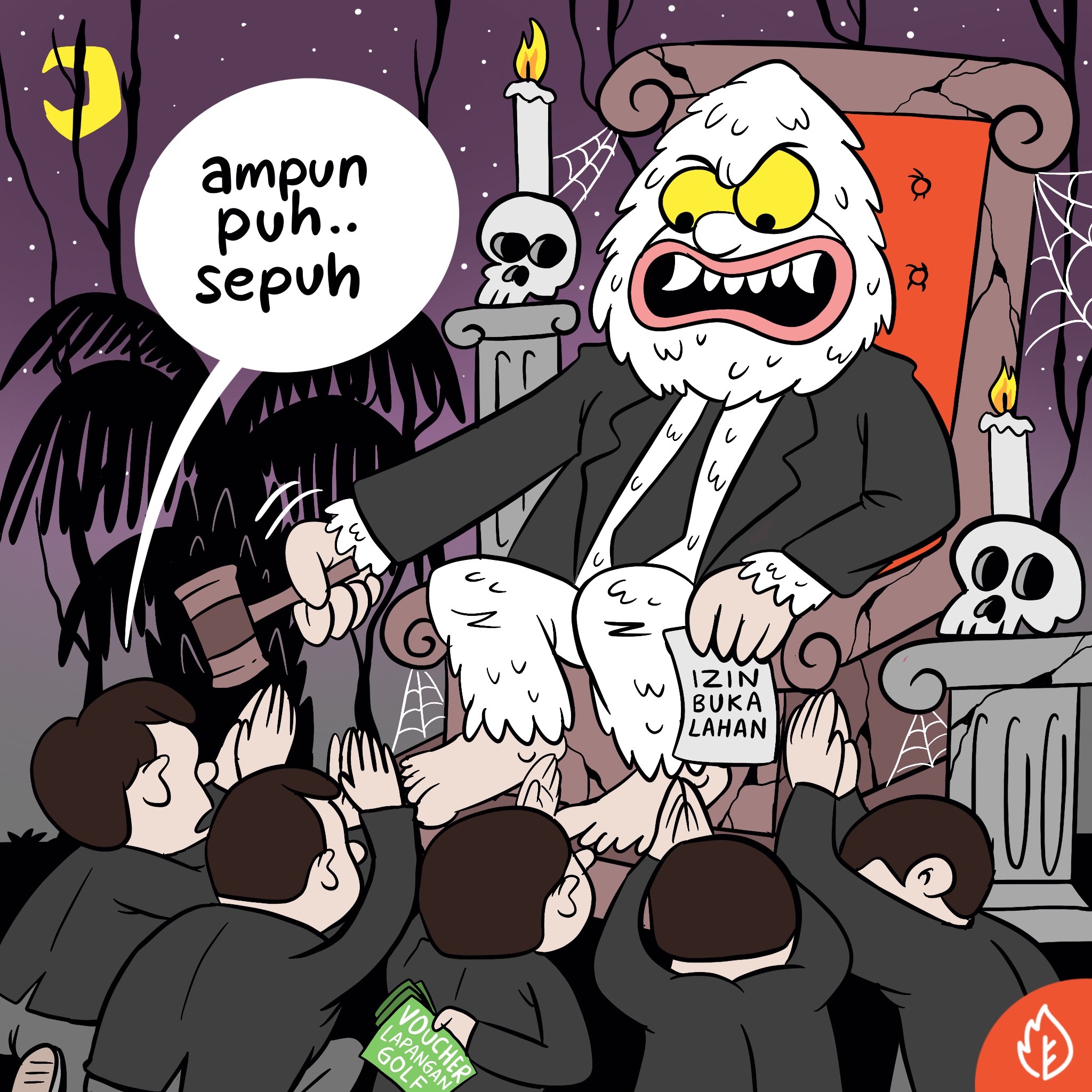
It stands tall, draped in white feathers covering its entire body, wearing a perpetually angry countenance. Nevertheless, it strives to maintain a sharp appearance, donning a black suit frequently sported by its admirers. These worshippers are no ordinary individuals; they are the tycoons of this nation, holding vast amounts of uncountable wealth. Like a money multiplier, these affluent individuals willingly offer tributes to ensure the smooth progression of their endeavors and the exponential growth of their wealth, even through morally questionable means.
It also wields a hammer, a seemingly unremarkable wooden hammer. Not particularly large, nor sharp. Legend has it named as the Hammer of Justice, created to defend the oppressed. However, under the control of this malevolent being, its destructive power becomes exceptionally formidable.
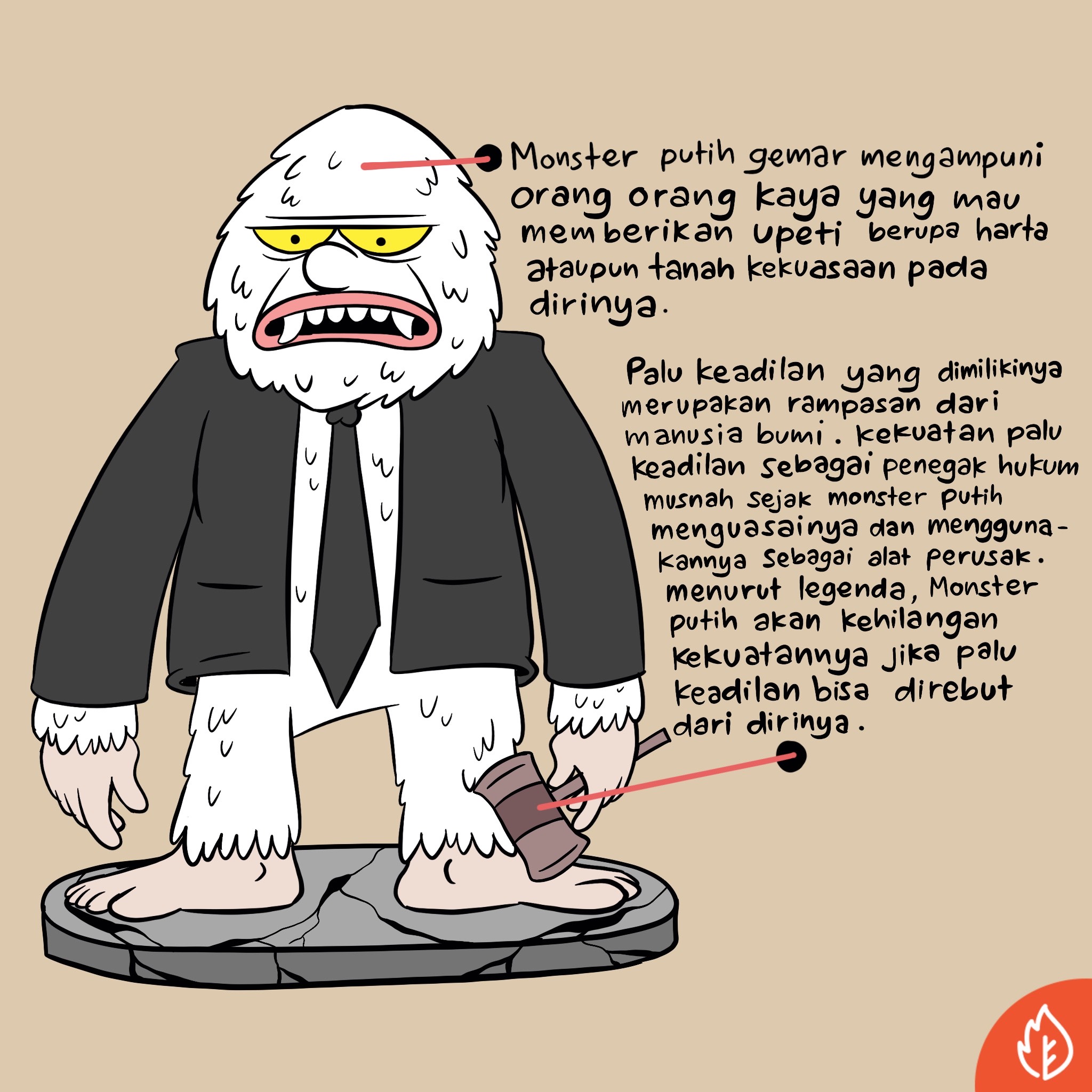
This is a brief depiction of the White Monster (Monster Putih). A representation conceived by Pantau Gambut to illustrate the government's pardoning or whitewashing efforts extended to illegal palm oil plantation companies operating in the "forbidden zone". This zone includes areas within the Peat Hydrological Units (PHUs) that should be protected under the Republic of Indonesia Government Regulation No. 57 of 2016 Regarding Amendments to Government Regulation No. 71 of 2014 Concerning the Protection and Management of Peat Ecosystems. The regulation specifies that no extractive activities should be permitted by anyone on peatlands with domed peat formations. You can explore peatland characteristics through the following link.
Oh, the sorrow of a thousand loss, according to the provisions of Articles 110A and 110B of the Omnibus Law on Job Creation, companies are only required to pay administrative fines to continue operations in that area. The task force directly accountable to the president has identified 3.3 million hectares of illegal oil palm plantations slated for whitewashing. This area will add to the 3.93 million hectares of oil palm plantations resulting from natural forest conversion between 2000 and 2019 (based on Mapbiomas data, 2023).
A dark record is transformed into a clean slate. This is why the term "amnesty" is recognized as "whitewashing."
If this whitewashing continues, it is not unlikely that Indonesia's environment and its people will endure further hardships. We will delve into the impact of this whitewashing in our upcoming posts. So, stay tuned for the #PerburuanMonsterPutih narrative on Pantau Gambut's Instagram!

